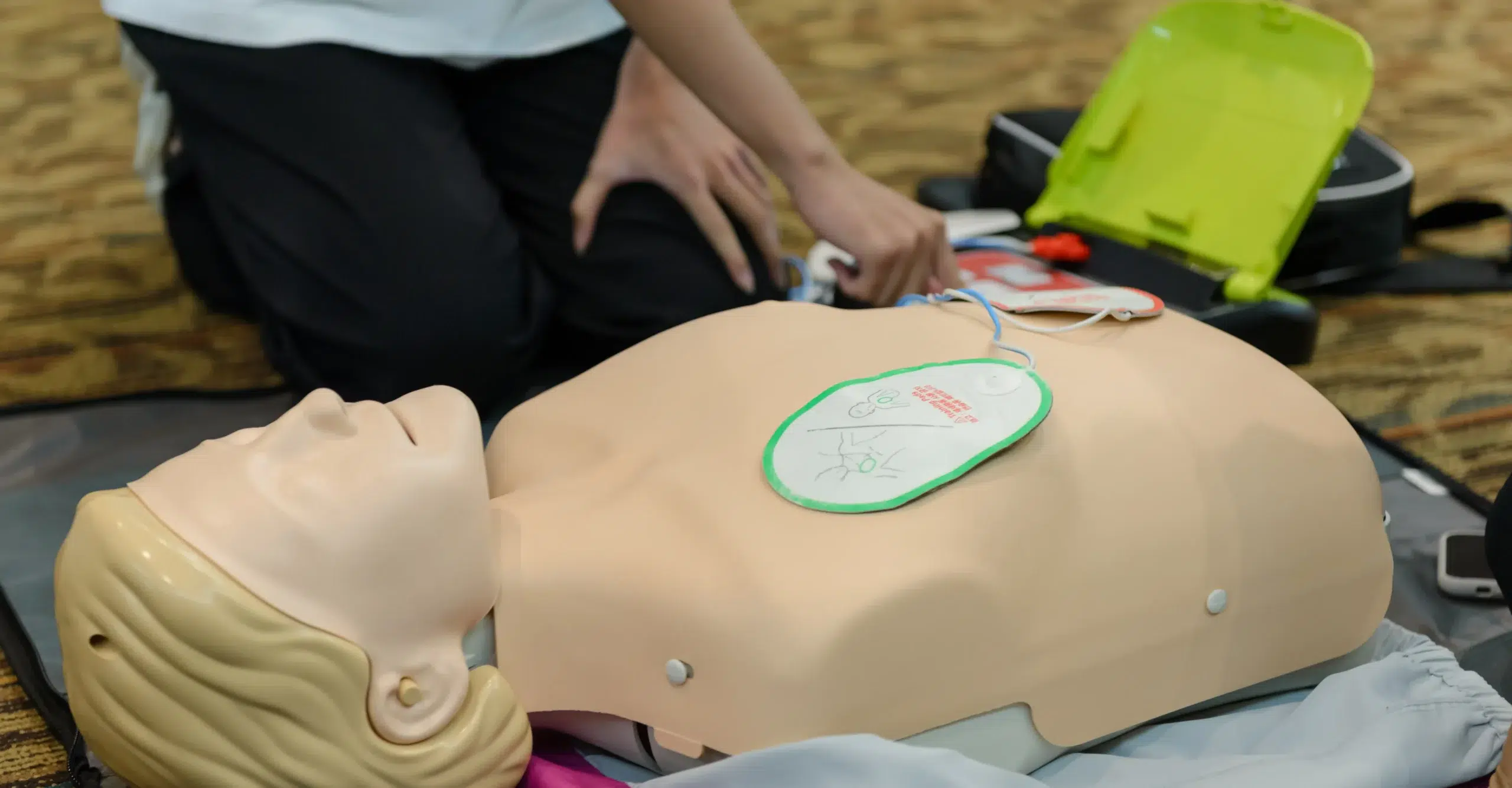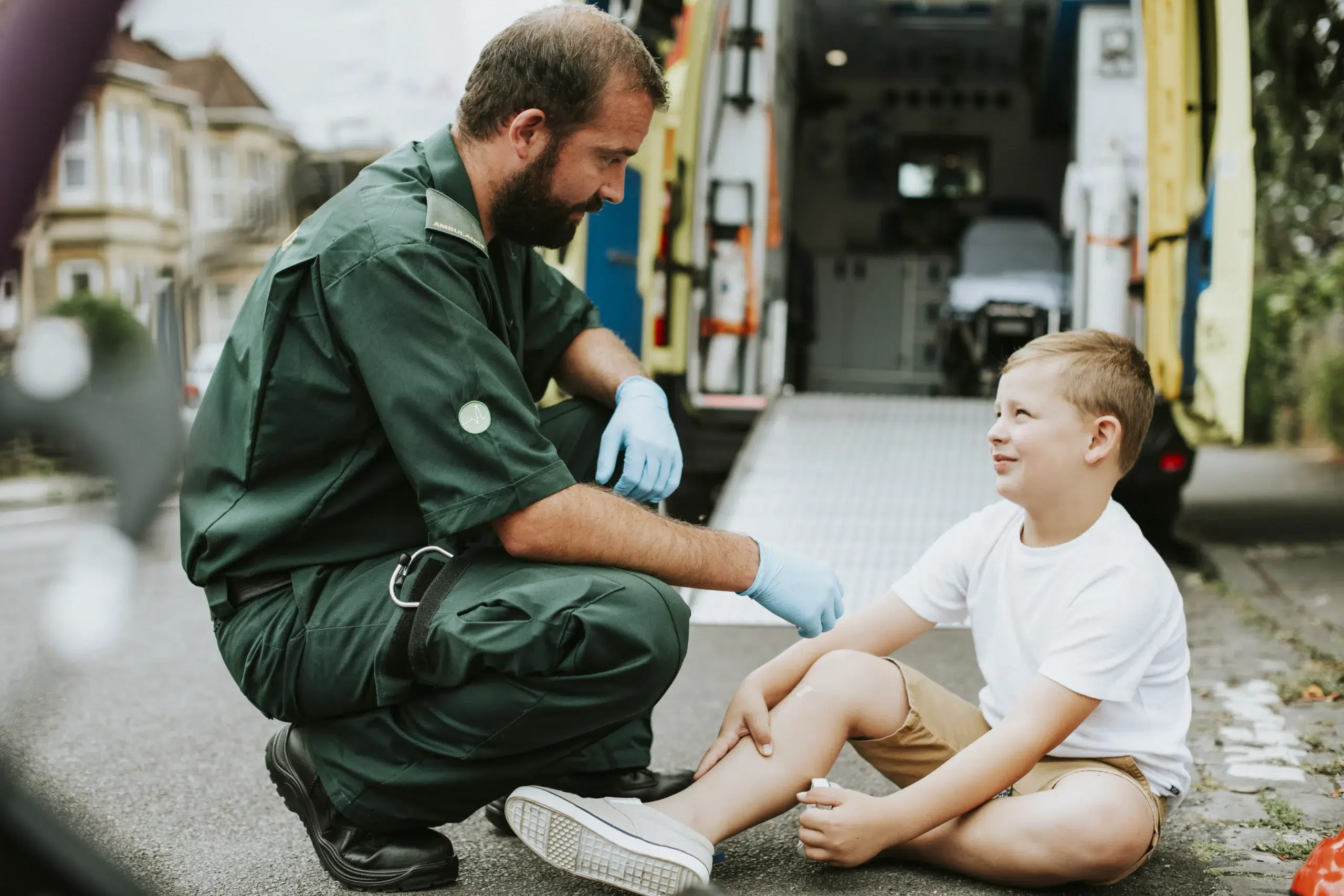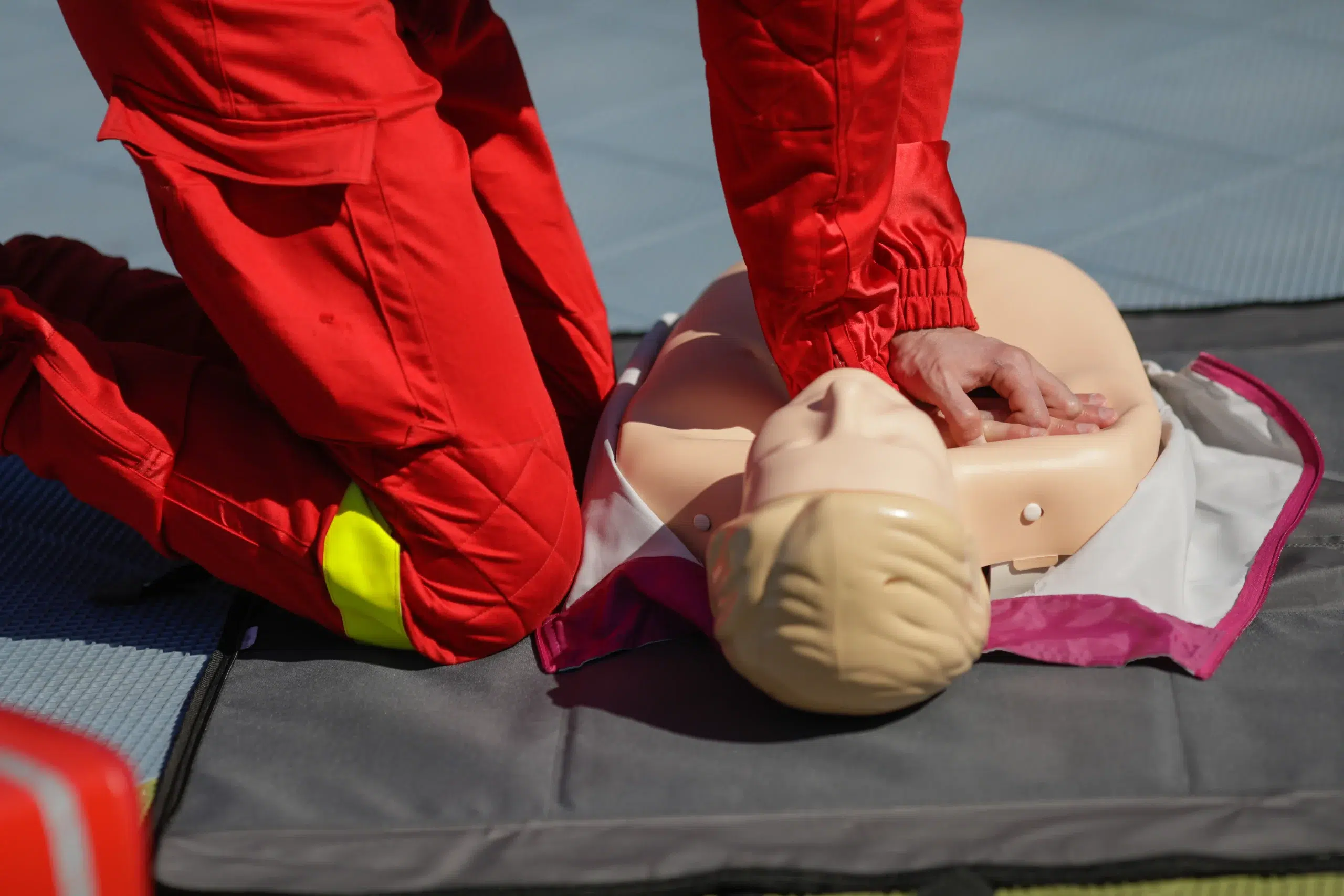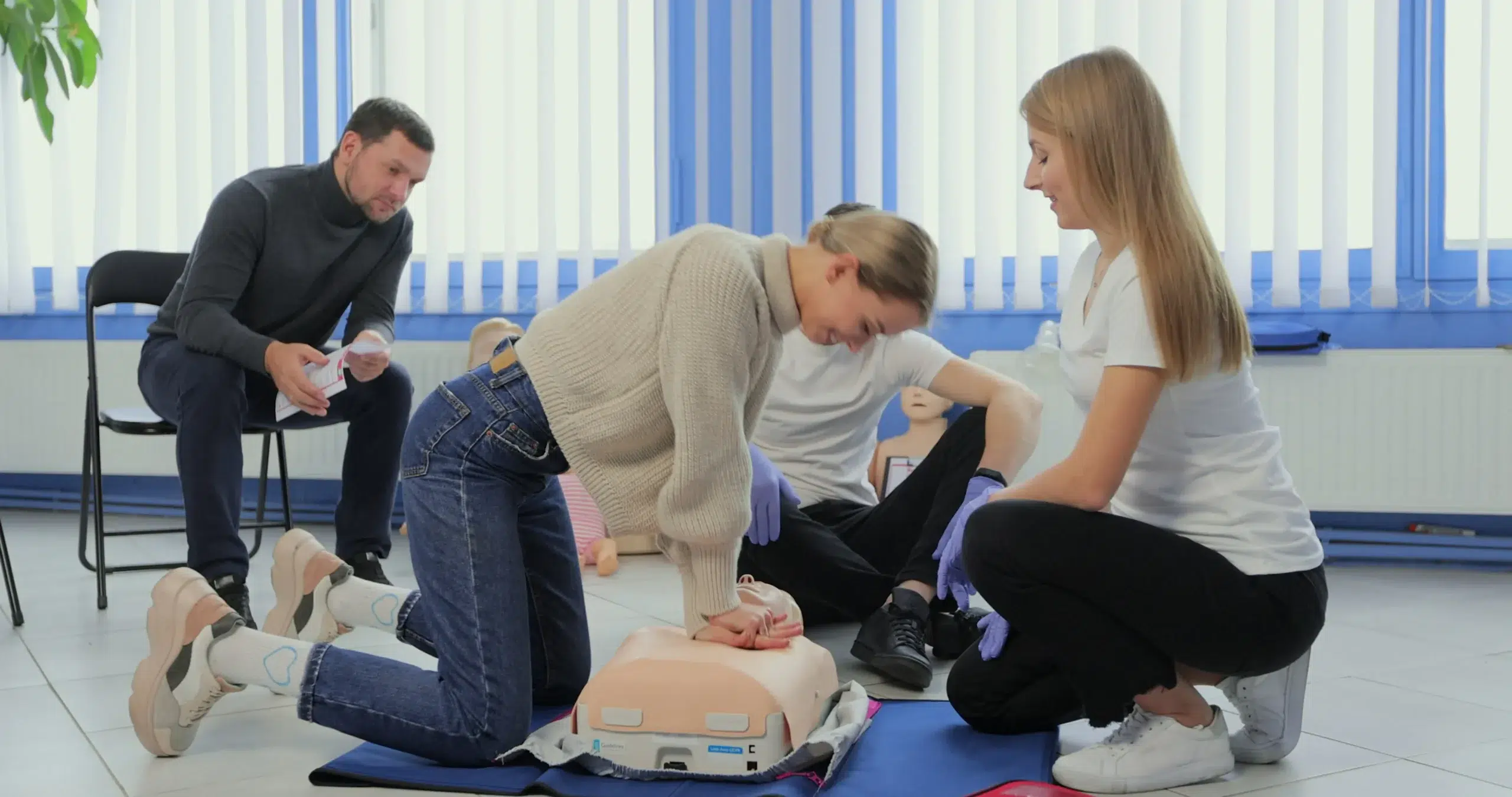Working in healthcare often means balancing patient care with ongoing professional development. Finding time for essential certifications like PALS can be a real struggle. HeartCode PALS offers a solution: blended learning that combines online modules with in-person skills practice. This approach allows you to learn at your own pace, making it easier to fit PALS training into your busy life. This guide will cover everything you need to know about HeartCode PALS in San Mateo, from the benefits of blended learning to local course options and what to expect during the training process.
Key Takeaways
- HeartCode PALS blends online learning with hands-on practice: This flexible format accommodates busy schedules and diverse learning styles.
- The program covers essential pediatric emergency protocols: You’ll learn key algorithms, assessment techniques, and post-resuscitation care.
- PALS certification demonstrates advanced pediatric care expertise: It benefits both your career and the quality of care you provide.
What is HeartCode PALS?
HeartCode PALS is the American Heart Association’s (AHA) blended learning method for Pediatric Advanced Life Support (PALS) certification. This format combines online learning with a hands-on skills session, offering flexibility for various learning styles and schedules. You’ll complete part of the course independently through eLearning and the other part in person, allowing you to learn key concepts and practice essential skills in a dynamic and engaging way.
Blended Learning Explained
Blended learning combines online convenience with the practical application of in-person training. With HeartCode PALS, you’ll first engage in self-directed online modules, working at your own pace through interactive lessons and simulations. This online portion builds a foundation in PALS concepts and protocols. You’ll then attend an in-person skills session to practice and demonstrate your proficiency in essential PALS techniques under the guidance of a certified instructor. This combination ensures a well-rounded learning experience. The AHA provides further details on PALS course options.
Key Program Components
HeartCode PALS uses an adaptive learning format, tailoring the online experience to your individual progress. The online portion’s completion time varies based on your performance and understanding of the material. This allows you to focus on areas needing more practice and move quickly through concepts you’ve already mastered. After the online training, the hands-on skills session typically lasts about five hours, including breaks. This in-person session lets you apply your knowledge and refine your skills in a realistic setting. For a more detailed overview, the AHA offers a breakdown of the PALS course structure.
HeartCode PALS vs. Traditional PALS: What are the Advantages?
Choosing the right PALS certification course format is a big decision. HeartCode PALS offers some compelling advantages, especially if you value flexibility and interactive learning. Let’s explore some key benefits of this blended learning approach.
Learn at Your Own Pace
Juggling work, family, and continuing education can be tough. HeartCode PALS recognizes this and lets you learn at your own speed. The online portion adapts to your individual learning style. This means you can move quickly through familiar concepts and spend more time on areas where you need extra focus. This personalized approach helps you truly understand the material, not just memorize it for a test. The American Heart Association’s PALS Course Options page details how this adaptive learning format works.
Interactive Content for Better Retention
HeartCode PALS isn’t just clicking through slides. The program uses interactive elements and simulations to make learning engaging and effective. You’ll work through realistic patient scenarios, make decisions, and see the outcomes of your choices. This reinforces your understanding of key PALS algorithms and protocols. This active learning style promotes better knowledge retention than traditional lectures. The AHA’s explanation of the PALS program highlights how this personalized learning path maximizes your understanding.
Comprehensive Curriculum
While the format is different, the content isn’t. HeartCode PALS covers the same comprehensive curriculum as traditional PALS courses, adhering to the American Heart Association’s rigorous standards. You’ll gain the same knowledge and skills, culminating in the same AHA PALS Course Completion Card. This ensures that regardless of how you choose to learn, your certification holds the same value and recognition.
HeartCode PALS: Course Structure and Duration
Online Portion: What to Expect
HeartCode PALS is the American Heart Association’s blended learning option for PALS certification. This format combines online, self-paced learning with a required in-person skills practice session. This allows you to study the core PALS material at your own speed, reviewing key concepts and algorithms as needed. The online portion uses interactive modules, simulations, and case studies to reinforce learning and prepare you for real-world scenarios. You’ll cover essential PALS algorithms and protocols, pediatric assessment techniques, and post-resuscitation care. This flexible approach lets you tailor your study time to your individual learning style.
Hands-on Skills Session
After completing the online modules, you’ll attend an in-person skills session. This session typically lasts about five hours, including short breaks. During this hands-on component, you’ll practice essential PALS skills, like high-quality CPR and effective team dynamics, under the guidance of a certified PALS instructor. The instructor will assess your skills and provide feedback to help you refine your technique. This combination of online learning and hands-on practice ensures you develop both the knowledge and practical skills necessary to respond confidently in a pediatric emergency. For more information on CPR training, check out our CPR and First-Aid Certification page.
Time Commitment and Scheduling
One of the key advantages of the HeartCode PALS blended learning format is its flexibility. The online portion is self-paced, so you can complete it at your own convenience. While the American Heart Association provides learning objectives, the actual time required to finish the online modules depends on your prior experience and how you learn best. Some students complete the online portion in a few focused sessions, while others prefer to study over a longer period. Once you’ve finished the online modules, you can schedule your in-person skills session with a local training center, such as Millbrae CPR Classes. We offer daily classes in over 60 cities, making it easy to find a time and location that fits your schedule.
Find HeartCode PALS Classes in San Mateo
Finding the right HeartCode PALS course in San Mateo means considering a few key factors: location, scheduling, and the training center itself. Let’s explore your options to help you make an informed decision.
Local Training Centers
San Mateo and surrounding areas offer various training locations, making it easy to find a class nearby. Whether you prefer a central location or one closer to home or work, you’ll find options throughout the area, including nearby Daly City and Millbrae.
Scheduling and Availability
Many training centers understand healthcare professionals’ busy schedules and offer flexible options. Look for providers offering weekday and weekend classes, including evening courses. Some centers also provide on-site training for groups, a great option for hospitals or clinics looking to certify multiple staff members. Check with individual providers about their schedules and group discounts. You can often find courses available daily, combining online learning with in-person skills sessions.
HeartCode PALS Providers in San Mateo
Several reputable providers offer HeartCode PALS certification in San Mateo. Here are a few to explore:
Millbrae CPR Classes
Millbrae CPR Classes offers a range of American Heart Association courses, including PALS. They’re known for their excellent customer service and focus on providing high-quality training tailored to healthcare providers.
Heart Start CPR
Heart Start CPR provides certification classes at various locations throughout the Bay Area, including San Mateo. Check their website for their current schedule.
Cascade Training Center
Cascade Training Center brings over two decades of experience to their training programs. They offer a comprehensive selection of courses, including ACLS, PALS, BLS/CPR, and First Aid, catering to various healthcare needs.
Emergency & Health Training Center
The Emergency & Health Training Center offers convenient on-site training at no extra cost, bringing the training directly to you. They specialize in American Heart Association CPR certification classes.
HeartCode PALS in San Mateo: Cost Breakdown
Understanding the cost of PALS certification is an important part of planning your training. Let’s break down the typical expenses for HeartCode PALS in San Mateo, including initial certification, renewals, and potential group discounts.
Initial Certification Pricing
The cost of initial HeartCode PALS certification varies by training center. Factors like the course format (blended learning or traditional classroom), included materials, and any extra resources influence the final price. Contact training centers directly for the most up-to-date pricing. Heart Start CPR offers various CPR, ACLS, and PALS courses throughout the Bay Area, and their website is a good starting point for cost comparisons.
Renewal Course Costs
Your PALS certification is typically valid for two years. Renewal courses are usually shorter and less expensive than the initial certification. For example, the Emergency & Health Training Center estimates their PALS renewal course at around $190. Remember that prices can change, so confirm directly with the provider.
Group Discounts and Offers
Training with a group? You might be eligible for a discount! Many training centers, including the Emergency & Health Training Center and Cascade Training Solutions, offer reduced rates for group bookings. Minimum participant requirements for group discounts vary, so check with each provider. Millbrae CPR Classes also offers group discounts and frequently runs promotions. Explore their low price guarantee for potential savings.
What Will You Learn in HeartCode PALS?
HeartCode PALS equips healthcare providers with the knowledge and skills to manage pediatric emergencies effectively. This comprehensive program covers essential topics, from core algorithms to post-resuscitation care. Let’s explore the key areas you’ll focus on during your training.
Core PALS Algorithms and Protocols
This course emphasizes the core PALS algorithms and protocols crucial for recognizing and responding to pediatric emergencies. You’ll learn systematic approaches to assess and manage respiratory distress, shock, and cardiopulmonary arrest. This includes understanding the specific steps involved in each algorithm and how to apply them in various clinical situations. The American Heart Association’s PALS Course Options provide more detail on these algorithms and their importance. Effective teamwork and communication are also highlighted, ensuring you’re prepared to work collaboratively under pressure.
Pediatric Assessment Techniques
Developing proficiency in pediatric assessment techniques is another critical component of HeartCode PALS. You’ll gain practical skills in evaluating a child’s airway, breathing, and circulation. The training covers age-specific variations in vital signs and physiological responses, allowing you to tailor your approach to each patient. Regular review and practice of these skills are essential for maintaining proficiency and providing optimal care. Common mistakes in PALS and how to avoid them are addressed in resources like this article on airway management.
Simulated Patient Scenarios
HeartCode PALS uses simulated patient scenarios to reinforce learning and build critical thinking skills. These interactive simulations present realistic clinical situations, allowing you to apply your knowledge and make decisions in a safe environment. The program’s adaptive learning path adjusts to your performance and confidence level, providing a personalized learning experience. This approach helps you gain practical experience and develop the confidence to manage real-world pediatric emergencies.
Post-Resuscitation Care
While immediate resuscitation efforts are vital, post-resuscitation care plays a significant role in a child’s recovery. HeartCode PALS emphasizes this often-overlooked aspect of pediatric emergency care. You’ll learn strategies for stabilizing patients after a cardiac event and providing ongoing support. This includes understanding potential complications and implementing appropriate interventions. Focusing on post-resuscitation care is crucial for improving patient outcomes, as highlighted by resources like this article from Heart Start CPR.
Prepare for Your HeartCode PALS Course
Getting ready for your HeartCode PALS course involves understanding the materials, learning strategies, and tech setup you’ll need. This preparation will help you succeed in both the online and hands-on portions of the course.
Recommended Study Materials
The American Heart Association provides the core materials for the PALS course. You’ll receive the PALS Provider Manual, your essential resource for algorithms, protocols, and critical information. Familiarize yourself with the manual before starting the online portion. Supplemental materials, like the PALS Pocket Reference Card, can also be helpful for quick reviews and on-the-go access to key information.
Tips for Online Success
The online portion of HeartCode PALS is self-directed, allowing you to learn at your own pace. Take advantage of this flexibility, but create a study schedule to stay on track. Review videos are a valuable tool—watching them significantly increases your chances of passing the skills test. Because the program uses adaptive learning, the time needed to complete the online portion will depend on your experience. Don’t rush, and focus on understanding the concepts, not just clicking through. Safety Training Seminars offers helpful resources for navigating the online learning environment.
Technology Requirements
HeartCode PALS uses an adaptive algorithm to personalize your learning experience. This means the program adjusts based on your answers and confidence levels. Make sure you have a reliable internet connection and a computer that meets the program’s system requirements. The hands-on skills session, which follows the online portion, will require approximately five hours, including breaks. Plan your schedule accordingly to accommodate this in-person component.
Overcome Common PALS Training Challenges
Let’s face it: adding another training to your busy schedule can feel overwhelming. PALS training, while incredibly important, is no exception. But with a little planning and the right approach, you can overcome common hurdles and succeed in your PALS certification journey.
Manage Your Time Effectively
One of the biggest challenges of PALS training is time management, especially with the HeartCode PALS blended learning format. The online portion is self-paced, which offers flexibility but also requires discipline. Because the online portion adapts to your experience level, the time required to complete it will vary. Some students may breeze through the material, while others might need more time. Create a realistic study schedule that works with your existing commitments. Break down the online modules into smaller, manageable chunks, and set aside dedicated study time. This approach will help you stay on track and avoid feeling overwhelmed. Check out these PALS Course Options for more information.
Troubleshoot Technical Issues
HeartCode PALS relies on technology, so occasional technical glitches can happen. The program uses an adaptive algorithm that personalizes your learning path based on your answers and confidence levels. If you encounter any technical difficulties, don’t panic. Contact your training center, like Millbrae CPR Classes, for guidance. Having a backup plan, such as a different device or internet connection, can also be helpful.
Bridge the Gap Between Online Learning and Hands-on Skills
Blended learning combines online modules with a hands-on skills session. While the online portion provides essential knowledge, the in-person session is crucial for developing practical skills and confidence. To make the most of both components, actively participate in the online modules. Take notes, review key concepts, and use the interactive features. The hands-on skills session for HeartCode PALS typically lasts around five hours, giving you ample opportunity to practice your skills with instructors. Come prepared with questions and be ready to engage with the instructors and other participants. This combined approach will solidify your understanding and prepare you for real-world pediatric emergencies. Learn more about the course structure to better prepare.
Why PALS Certification Matters for Healthcare Professionals
As a healthcare provider, you know that seconds can matter in an emergency. PALS certification equips you with the specialized knowledge and skills to confidently respond to pediatric emergencies, ultimately improving patient outcomes. It’s not just a credential—it’s a commitment to providing the highest quality of care.
Advance Your Career
PALS certification demonstrates a dedication to advanced training in pediatric care, which can open doors to new opportunities and career advancement. Many healthcare facilities require PALS certification for specific roles, making it a valuable asset for nurses, paramedics, respiratory therapists, and other healthcare professionals. The American Heart Association’s PALS Provider Course is designed to improve outcomes for pediatric patients. This is achieved by preparing providers to effectively recognize and intervene in emergencies such as respiratory distress, shock, and cardiopulmonary arrest. This specialized training can distinguish you from other candidates and enhance your professional profile.
Improve Patient Care
PALS certification goes beyond basic life support. It emphasizes a systematic approach to pediatric assessment, treatment, and post-resuscitation care. This comprehensive training helps providers avoid common mistakes and deliver the best possible care during critical moments. As highlighted by Heart Start CPR, focusing on post-resuscitation care is crucial for improving patient outcomes. With PALS, you’ll gain the skills to manage these complex situations effectively and confidently.
Build Confidence in Pediatric Emergencies
Facing a pediatric emergency can be stressful, but PALS certification empowers you to act quickly and decisively. The HeartCode PALS program uses adaptive learning technology to personalize your training and build your confidence through interactive simulations and personalized feedback. You’ll develop the critical thinking skills and muscle memory needed to respond effectively under pressure. This preparation translates to improved patient care and better outcomes in real-world scenarios.
HeartCode PALS: Participant Feedback and Experiences
Blended Learning Benefits
The blended learning format of HeartCode PALS offers healthcare providers flexibility when renewing or obtaining PALS certification. The online portion allows you to learn at your own speed, fitting the training around your busy schedule. This adaptable approach recognizes that healthcare professionals have varying levels of experience. Whether you’re a seasoned pro or refreshing your skills, the program adjusts to your needs. This self-paced element can be particularly helpful for those juggling work, family, and other commitments.
Hands-on Session Quality
After completing the online modules, you’ll participate in a hands-on skills session. This in-person component provides a structured environment to practice essential PALS techniques. These sessions typically last about five hours with short breaks, ensuring you have ample time to hone your skills and receive personalized feedback from instructors. This focused time allows for a deep dive into critical procedures, building confidence for real-world scenarios. The American Heart Association details the course structure on their website.
Overall Satisfaction and Recommendations
Regularly reviewing and practicing airway management and other essential PALS protocols is crucial for any pediatric healthcare provider. Staying proficient ensures you can deliver high-quality care to young patients during emergencies. HeartCode PALS provides the tools and training to maintain these high standards. Resources like Heart Start CPR offer valuable insights into common PALS challenges, further enhancing your preparedness. Many participants report increased confidence and a deeper understanding of PALS protocols after completing the course.
Related Articles
- AHA PALS Classes in Millbrae, CA – Millbrae CPR Classes
- American Heart Association Courses in Millbrae – Millbrae CPR Classes
- CPR Certification Millbrae: Your Comprehensive Guide – Millbrae CPR Classes
- CPR Classes in Daly City: Your Complete Guide – Millbrae CPR Classes
- Why CPR is Important in Healthcare – Millbrae CPR Classes
Frequently Asked Questions
What is the main difference between HeartCode PALS and traditional PALS? HeartCode PALS uses a blended learning approach, combining online modules with an in-person skills session, while traditional PALS typically involves only classroom learning. This blended format offers more flexibility for scheduling and allows you to learn the material at your own pace online before practicing your skills in person.
How long does it take to complete the HeartCode PALS course? The online portion is self-paced, so the time varies depending on your individual learning style and experience. The in-person skills session typically takes about five hours.
What is included in the in-person skills session for HeartCode PALS? The skills session focuses on practicing the techniques you learned in the online modules. You’ll work with a certified instructor to refine your skills in a realistic setting, ensuring you’re prepared to apply them in real-world emergencies.
Where can I find HeartCode PALS courses in San Mateo? Several training centers in and around San Mateo offer HeartCode PALS certification, including Millbrae CPR Classes, Heart Start CPR, Cascade Training Center, and the Emergency & Health Training Center. Check their websites or contact them directly for schedules and availability.
How much does HeartCode PALS certification cost? The cost varies depending on the training center and whether you’re pursuing initial certification or renewal. Many centers offer group discounts, so inquire about those options if you’re training with colleagues. It’s always best to contact the specific training center for the most up-to-date pricing information.






